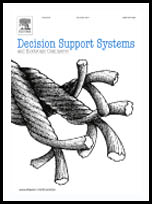We analyze the economic trade-offs associated with open-sourcing, the business strategy of releasing free open-source versions of commercial software products. We argue that the effect of the release of open-source versions on the customers' perception of products is an important determinant of open-sourcing outcomes.Open-sourcing is modeled as a strategic option for duopolists that compete in a market for software products. We show that open-sourcing can arise as an equilibrium outcome in our simple two-stage game. If the enhancement of customer values from open-sourcing is moderate or high, firms may find it optimal to release open-source versions of their products.

DOI: https://doi.org/10.1016/j.dss.2012.05.001
(*Octavian Carare and Kutsal Dogan are the other authors of this article.)
